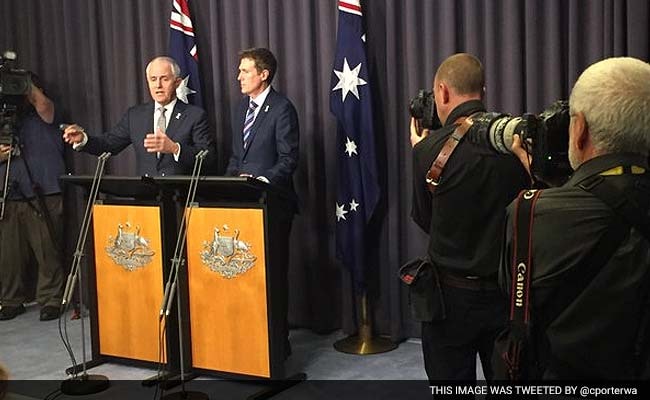
Australia now has 30 international social security agreements around the world to support people living and working in more than one country.
Melbourne:
A new social security agreement signed between India and Australia has come into operation enabling people of both nations to avail retirement benefits in each other's country, a pact likely to boost bilateral business linkages.
Australian Minister for Social Services, Christian Porter, and Minister for Small Business and Assistant Treasurer, Kelly O'Dwyer said the Commonwealth government wanted to make sure people who live and work in more than one country are not disadvantaged.
The Agreement signed in November 2014 came into operation on January 1, 2016.
"This agreement will give people more freedom to move between Australia and India, knowing their pension rights will be recognised and protected," Mr Porter said.
"Australian residents living in India will be able to claim the Australian Age Pension without having to return to Australia, while Indian residents living in Australia will have access to Indian retirement pensions. It's a win-win," he said.
Citing that ties will improve business linkages, Ms O'Dwyer said, "As a result of this agreement, temporarily seconded workers, and their employers, will only have to make compulsory contributions into their home country's superannuation or pension system rather than both countries' systems."
"This is expected to save Australian businesses operating in India about Rs 66 crore (USD 10 million) per year, and put Australian businesses on an equal footing with their competitors from other countries that already have similar agreements with India," she said.
"Further, it is an important step in strengthening Australia's relationship with India, and shows the government's commitment to the 397,000 Indian-born people living in Australia, who make a substantial contribution to our community," Ms O'Dwyer said.
Australia now has 30 international social security agreements around the world to support people living and working in more than one country, including with countries like Austria, Belgium, Canada, Japan, Korea, Spain, Switzerland and the US.
Australian Minister for Social Services, Christian Porter, and Minister for Small Business and Assistant Treasurer, Kelly O'Dwyer said the Commonwealth government wanted to make sure people who live and work in more than one country are not disadvantaged.
The Agreement signed in November 2014 came into operation on January 1, 2016.
"This agreement will give people more freedom to move between Australia and India, knowing their pension rights will be recognised and protected," Mr Porter said.
"Australian residents living in India will be able to claim the Australian Age Pension without having to return to Australia, while Indian residents living in Australia will have access to Indian retirement pensions. It's a win-win," he said.
Citing that ties will improve business linkages, Ms O'Dwyer said, "As a result of this agreement, temporarily seconded workers, and their employers, will only have to make compulsory contributions into their home country's superannuation or pension system rather than both countries' systems."
"This is expected to save Australian businesses operating in India about Rs 66 crore (USD 10 million) per year, and put Australian businesses on an equal footing with their competitors from other countries that already have similar agreements with India," she said.
"Further, it is an important step in strengthening Australia's relationship with India, and shows the government's commitment to the 397,000 Indian-born people living in Australia, who make a substantial contribution to our community," Ms O'Dwyer said.
Australia now has 30 international social security agreements around the world to support people living and working in more than one country, including with countries like Austria, Belgium, Canada, Japan, Korea, Spain, Switzerland and the US.
Track Latest News Live on NDTV.com and get news updates from India and around the world

